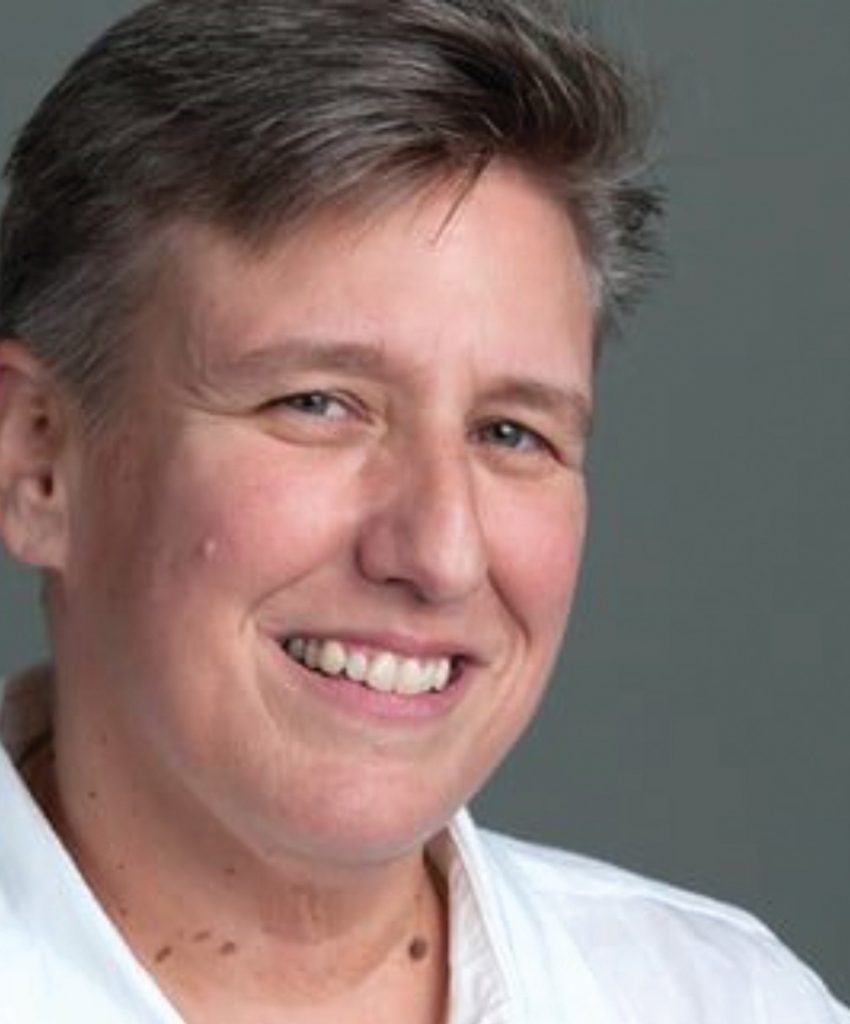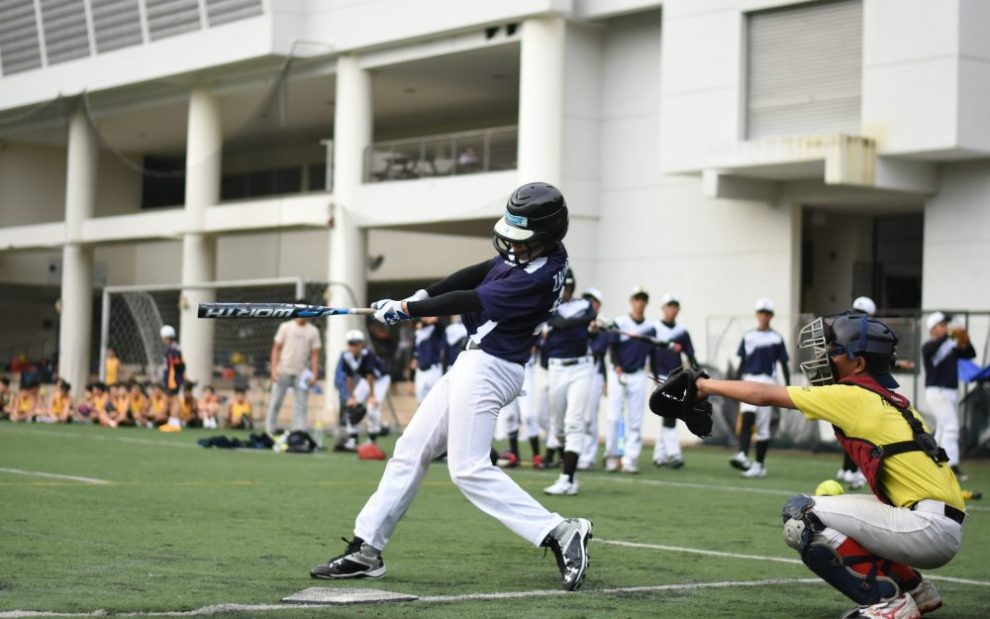
When Bronx native Carmen Nanko-Fernández first moved to Chicago to teach theology at Catholic Theological Union (CTU), one of the first things she did was go to a White Sox game.
It was 2005, and she went to watch José Contreras’ first home game as pitcher. Contreras previously played for the Yankees and, like Nanko-Fernández, had been “traded to Chicago,” she says. Also like her, his family had migrated from Cuba to New York.
“I was so homesick and miserable; I figured whether he knew I was there or not, it was an alliance of folks from the Cuban diaspora to New York who were stuck in Chicago,” she says. The Sox won the World Series that year. “My survival in Chicago, I attribute to baseball.”
Nanko-Fernández is a professor of Hispanic theology and ministry and the chair of the spirituality and pastoral ministry department at CTU, “now known as [Pope Leo XIV]’s alma mater,” she says. She writes about sport and theology, particularly baseball.
Nanko-Fernández’s love of baseball and interest in theology have been with her since she was a kid, when she was named class theologian by her second grade teacher. At her first communion, and then at confirmation, she expected something miraculous to happen when receiving the sacraments. When nothing seemed to, she began her “theological journey trying to figure out what happened,” she says.
Nanko-Fernández studied theology at Catholic University in Washington, D.C., which led her into ministerial and teaching roles. She taught high school theology for 18 years and served as a campus minister.
When Nanko-Fernández was studying theology, Latino/a theologies weren’t courses yet, and Spanish wasn’t considered a theological language. The pioneers of Latino/a theologies had just begun to be recognized and studied, and liberation theologies were also breaking onto the scene.
Nanko-Fernández was part of a class that she considers to be the “1.5 generation of Latino/a theologians. We didn’t have the scholarships or programs or opportunities, but we’re not the pioneers, because we graduated school right after they did.” After her doctoral studies, she joined the Academy of Catholic Hispanic Theologians of the United States.
Latino/a theologies “take seriously a person’s location, their lived experience,” Nanko-Fernández says. “Daily experience provides slices of life that invite further digging into the theological.”
They also focus on the option for the poor and vulnerable, she says. “One of the big gifts of Latino/a theologies is that they say, lo cotidiano, or daily lived experience, as it’s lived. Not as abstraction, but as it’s lived out in concrete lives. That is a site of theologizing.”
Her ministry experience with young people, especially high schoolers, gave Nanko-Fernández a “lived appreciation of the needs for preferential options for the young,” she says. Her dissertation work focused on the connection between Catholic social teaching and young people.
Nanko-Fernández says it was during her time with high school students that she learned “you need other languages to communicate—the languages of lo popular, popular culture, popular religion.”
In taking daily life seriously, with all the moments of grace and sinfulness and “downright boringness,” Nanko-Fernández says, she began to see music, art, and sports as languages, different ways to communicate. Pope Francis also saw sports as a “language, a dialect,” she says.
According to Nanko-Fernández, there are very few Latino/a theologians doing work in sport theology, especially women. She comes from a baseball family—her dad taught her to play, and her mom often took the kids to ball games. “I thought I’d play for the Yankees one day,” she says. “Nobody told me I couldn’t.”
Looking at baseball, especially as a Latino/a theologian, “I see you’ve got a sport that’s built off of close to a 30 percent immigrant and migrant base,” Nanko-Fernández says. “When you go down to the minor leagues, you’re talking higher, like 60 to 70 percent. You’re talking about an economy, about globalization.”
Historically, baseball “spread in places along with colonization and imperialism, and at the same time, on the ground as resistance to that,” she says. “That was happening with religion, too, when you look at the story of Latin America.”
Pope Francis “spoke the language” of sports and “took them seriously; he was a fan,” she says. Nanko-Fernández and her siblings played baseball in front of their house; Francis, too, was a “street player.”
“I like the ways that Pope Francis talked about sports, as spaces for encounter and dialogue,” she says. “That meant that they were open to all people of goodwill. Something doesn’t have to have everybody saying ‘God’s in this’ for God to be there.”
For Nanko-Fernández, it will be interesting to see how Pope Leo XIV engages with sports, if he will continue on the path of Francis. “The smoke isn’t up 10 minutes before Chicago’s arguing whether he’s a Cubs or Sox fan,” she says. “I don’t know why [JD Vance] gave him a Bears jersey. I thought it was very intriguing. Bringing the violent sport to the Vatican.”
She compares the narrative around Pope Leo’s favorite sports teams with Pope Francis’ own interactions with Major League teams. “Francis had that whole relationship with the New Orleans Saints because he kept accidentally tagging them” on social media, she says. “Those are funny moments, they’re human moments. But they’re also graced moments, opportunities that get people talking.”
Aside from sports, Francis’ ability to be an accessible theologian inspired Nanko-Fernández. “All theologians should aspire to be accessible, because God doesn’t need theology. Theology is for human beings trying to make sense of things,” she says.
For laypeople in the church, Nanko-Fernández says we are all called to “active participation throughout the mission of the church.” Some, but not all, “may be called to lay ecclesial ministry, but some of us may be great accountants, and God knows our church could use some great accountants. How does that accounting participate in the mission and ministry of the church? How do we see our roles playing into that?”
Discerning our role in the life of the church will be influenced by our daily lived experience. “Very early on, I recognized that you can take the New Yorker away from New York, but that’s just an embedded part of looking at the world,” she says. “When you consider that as a place of doing theology, [being from New York] has influenced so much of how I understand the world.”
This article also appears in the August 2025 issue of U.S. Catholic (Vol. 90, No. 8, pages 45-46). Click here to subscribe to the magazine.
Image: Unsplash/Nathaniel Yeo















Add comment